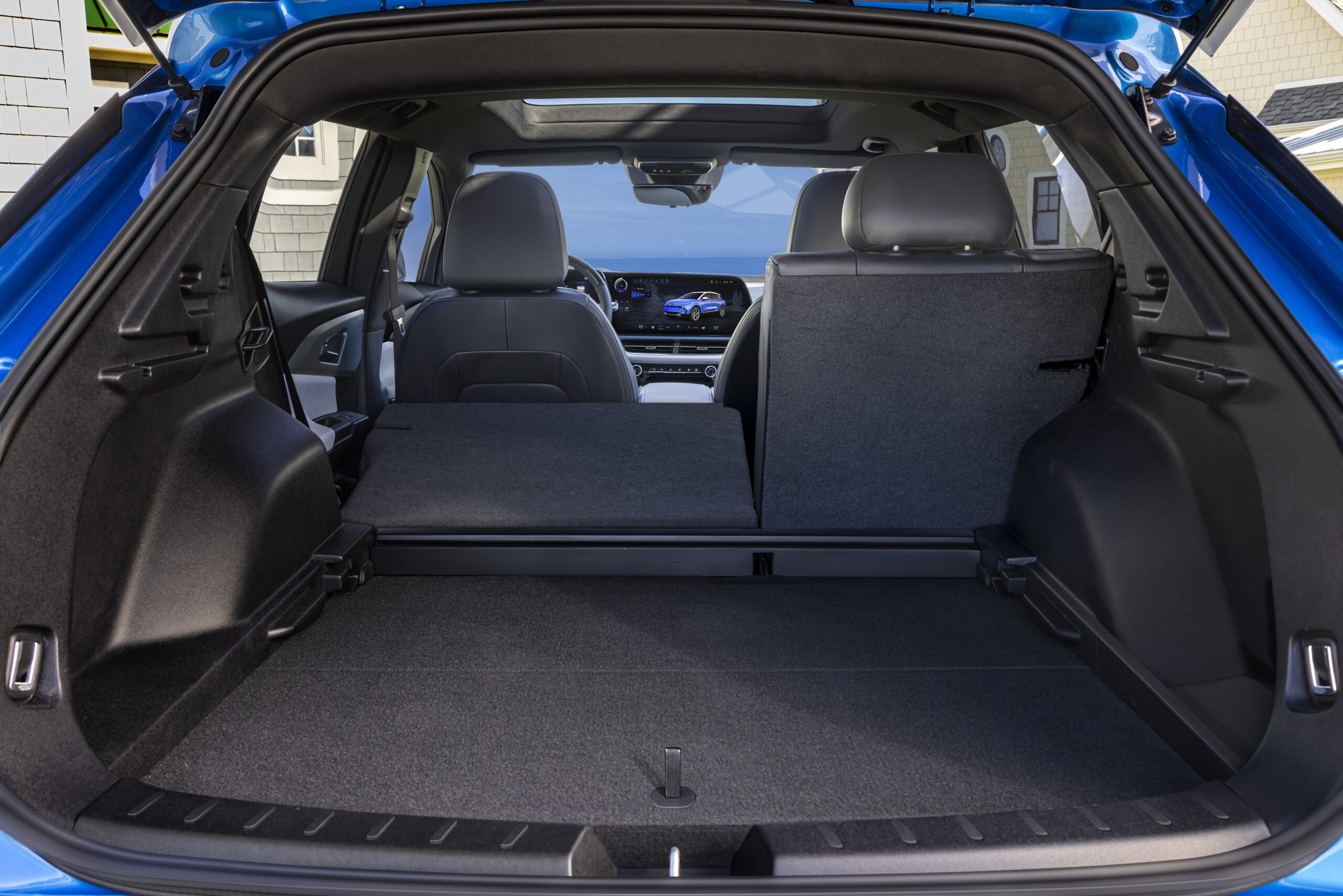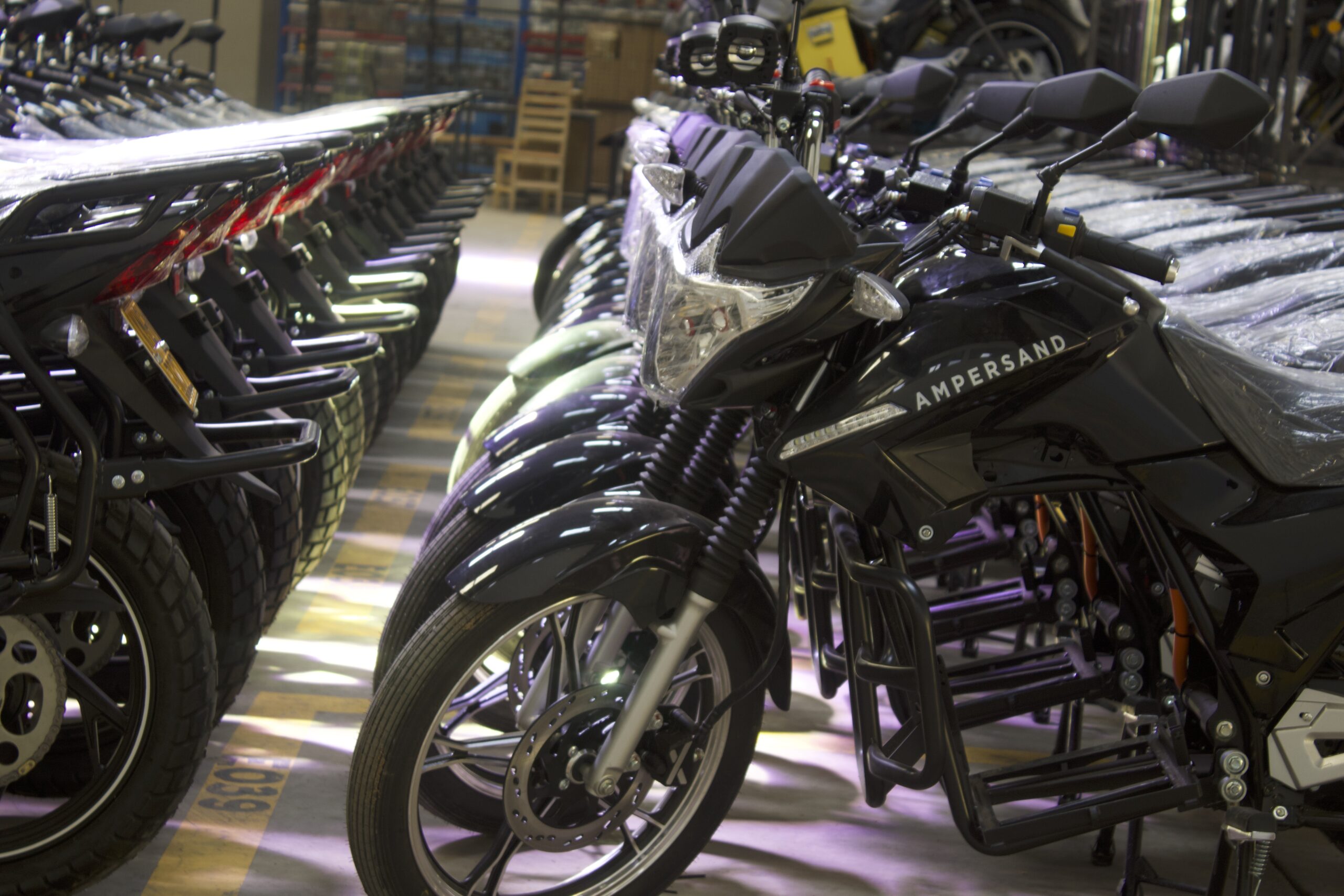Sign up for daily news updates from CleanTechnica on email. Or follow us on Google News!
The 2024 Chevrolet Equinox EV addresses several shortcomings of its predecessor, the Bolt, by offering competitive pricing, modern interior design, and improved safety features. It boasts a spacious interior and advanced charging capabilities. Despite these improvements, skepticism remains due to GM’s history of EV production.

A Brief History
Chevrolet has a long history of disappointing electric vehicle fans, which I will just mention a few highlights of here. The company made the pioneering EV1 that it famously took away from every satisfied lessee. Next, it made a very good plug-in hybrid called the Volt that I almost bought in 2011. I bought a Nissan Leaf instead. I didn’t get the Volt for three reasons. I was mad at GM for taking the bailout, I didn’t like that the Volt only seated 4 people (it used that middle rear spot for the battery) since I had 3 kids at home at the time, and the price was $5,000 more than the Leaf. Had I not had gas cars for longer trips, I might have considered the Volt, but I bought the Leaf and just used my three gas cars for longer trips. Of course, the four seats meant it wouldn’t have even fit my family of five for long trips, so it just wasn’t a good fit for me.
Next, the Chevy Bolt came out right before the Tesla Model 3. Analysts seriously thought the Bolt would have as many or more sales as the Tesla Model 3, but it didn’t for the following reasons (in my opinion):
- The Bolt was only a little less expensive than a Tesla Model 3 at the time, while Tesla was still widely considered an exclusive and cool luxury brand.
- The Bolt just didn’t have the exciting sexy looks of the Tesla Model 3.
- The Bolt didn’t have the performance or the promise of full self driving (even though that promise as been unrealized to date).
- The Bolt didn’t have the range of the Tesla — it was limited to 50 kW fast changing and couldn’t access the large and reliable Tesla Supercharger network.
- Just when electric vehicles got really popular in 2020 during the Covid era, Chevy spent a couple of years with bad-publicity recalls due to Chevy Bolt fires. This was of course more the fault of LG than Chevy, but Chevy had to take the blame for the partners it chose. This didn’t just hurt Chevy, but hurt the entire EV industry, since there are bad actors (arguably backed by the oil companies) that promote the myth of EV fires being common based on a few issues like this. I was in a parking garage a couple weeks ago and I saw a sign prohibiting Chevy Bolts even in 2024!
- Chevy didn’t seem to want to produce many (possibly because it wasn’t making any money on them). As I documented in this article, the Bolt was a fabulous deal in Colorado last year, but you couldn’t get it since the dealers were only allocated a few cars a month and they were all sold out for the year (when Tesla “dealers” were selling many cars a day).
Enough of the past, what is Chevy coming out with this year?
2024 Chevy Equinox EV

The Equinox is Chevy’s second best selling vehicle, so it is clearly trying to mainstream the car as opposed to the old Toyota strategy of making a different brand (Prius) for its eco cars (started 25 years ago). It doesn’t carry the risk that Ford took with their Mustang brand because the Equinox brands doesn’t have the kind of loyal fan base of the Mustang brand that will push back. Although Chevy will sell the Equinox alongside the Equinox EV, it didn’t just stuff some batteries into its gas car design like the old days of compliance cars. Chevrolet also didn’t attempt to design a car that could be a gas car, a hybrid, a plug-in hybrid, or an EV, like some companies (like Kia, Hyundai, and BMW) have tried over the years. Some of these chameleons with many drivetrains have been more successful than others, but it is widely acknowledged that you get a better EV if you design it from the ground up to be an EV. You don’t end up with hundreds of pounds of extra weight from legacy parts that just aren’t needed.
 Chip in a few dollars a month to help support independent cleantech coverage that helps to accelerate the cleantech revolution!
Chip in a few dollars a month to help support independent cleantech coverage that helps to accelerate the cleantech revolution!
We have already written about this car’s competitive price here, and one of our writers will probably buy one. Chevy just put out a press release on the car yesterday. Below are a few things that caught my eye and why they matter.
Today, the Equinox EV has a starting MSRP of $43,295. The base Equinox EV LT with a starting MSRP of $34,995 will be available for ordering later in the year.
We all know purchase price is a big barrier to buying an EV. The MSRP is competitive to the leading Tesla Model Y (which starts at $44,990). Just as Tesla will have more affordable models later this year, so will Chevy.
In addition to the Ultium-based propulsion technologies, key features include a large, 17.7-inch-diagonal infotainment screen, a strong suite of standard and available driver assistance technologies, and available Super Cruise4 hands-free driver assistance technology on compatible roads.

A large screen and driver’s assistance technology is important to be competitive to Tesla and the other leaders in this space.
Chevrolet also knows safety is top priority for families and the Equinox EV delivers with a strong list of standard features:
- Chevy Safety Assist, which includes Automatic Emergency Braking, Following Distance Indicator, Forward Collision Alert, Front Pedestrian Braking, Lane Keep Assist with Lane Departure Warning and IntelliBeam automatic high beams
- Rear Park Assist
- Reverse Automatic Braking
- Safety Alert Seat
- Rear Cross Traffic Braking
- Blind Zone Steering Assist
- Adaptive Cruise Control
Additionally, Super Cruise, the industry’s first true hands-free driver-assistance technology is also available. It allows drivers to travel hands-free on more than 400,000 miles of compatible roads across the U.S. and Canada.
Chevy is prioritizing safety features, which is important to win over families.

- New electronic transmission range selector on the steering column eliminates a range selector mechanically linked to the transmission, opening more storage space beneath the infotainment screen, ahead of the center console
- Engaging tactile materials and decorative trim with coordinated textures are used in the seats, instrument panel, doors, storage areas and more
- Available Evotex seating on LT
- Folding 60/40 split-bench second row seats, enabling up to 63.5 cubic feet of storage with both seats folded
- Hidden rear cargo floor storage space
It looks like the interior has been optimized to provide more space than previous models.
The Equinox EV also packs the latest in charging technology:
- Standard 11.5 kW Level 2 (AC) charging, which can add up to 34 miles of range per hour of charging, per GM estimates
- Standard DC fast-charging capability of up to 150 kW, which enables approximately 70 miles of range to be added in 10 minutes, per GM estimates
Both of these figures are better than the Bolt. The L2 charging is about 50% faster than the 7.7 kW charging in the Bolt. I don’t think this is much of an advantage, since a lot of times, the L2 charger only supports 7.2 kW charging in my experience. Also, for overnight charging, the 7.7 kW was already good enough. The 150 kW max speed for DC fast charging, on the other hand, is 3 times faster and a huge deal. This is the difference between the Bolt being a bad road tripper to the Equinox EV being a decent trip car (certainly not leading like the cars that offer 250 kW or 350 kW, though). It is also important to test the whole charging curve to see how long the battery can be charged at a high rate. 70 miles in 10 minutes is great, but if I need 200 miles, is it 30 minutes or an hour?
EPA-estimated range:
FWD: 319 miles on a full charge
AWD: 285 miles on a full charge
With Tesla recently upping its range on the RWD Model Y from 260 miles to 320 miles a couple weeks ago, and the AWD being at 310 miles, the Equinox EV went from being a lot better in the single-motor model and a bit worse in the AWD model to being about the same with the single motor and 25 miles lower on the AWD version.
Conclusion
So how does the Equinox compare on the 6 factors that I thought hurt the Bolt so much?
- On pricing, it all depends what the dealers sell it for, but it could be competitive.
- On looks, I’d say it compares well to the Model Y, which suffers from being too common now and is a more traditional crossover shape, which offers better cargo space.
- On performance and driver assistance, it is acceptable, but not anything special. It still is missing the promise of full self driving, but most people doubt whether Tesla will get there too.
- Regarding range, charging speed, and using the Tesla Supercharger network — the Equinox is competitive on all three.
- On the fire issue and recall, this is a whole different battery and I haven’t heard of any issues with Ultium safety. I think it is likely than Chevy spent more time testing this pack after the Bolt recall.
- On GM’s commitment to produce a large quantity, the company has said it will make a lot of them, but its track record of meeting its commitments isn’t good, so we will see.
So, my conclusion is mixed. On the surface, GM has addressed all the major problems of the Bolt, but it also hasn’t convinced me this model will be a home run. I will be getting some time over the next few weeks to drive an Equinox EV and speak to Chevrolet executives about the car. Maybe they don’t need the car to be a home run, maybe they will be happy with a solid base hit. Where Tesla only has a few models and needs every one to be home run, Chevy has a broad lineup of gas, diesel, hybrid (coming soon), and fully electric vehicles. They don’t need to sell a million a year of this. They just need to sell a bunch and build some volume to help GM achieve some economies of scale. I’ll be asking the executives what their goals are for this car. I’m excited to see it in person, but am skeptical based on GM’s history.
Disclosure: I am a shareholder in Tesla [TSLA], BYD [BYDDY], Nio [NIO], XPeng [XPEV], Hertz [HTZ], NextEra Energy [NEP], and several ARK ETFs. But I offer no investment advice of any sort here.
Have a tip for CleanTechnica? Want to advertise? Want to suggest a guest for our CleanTech Talk podcast? Contact us here.
Latest CleanTechnica.TV Video
CleanTechnica uses affiliate links. See our policy here.





